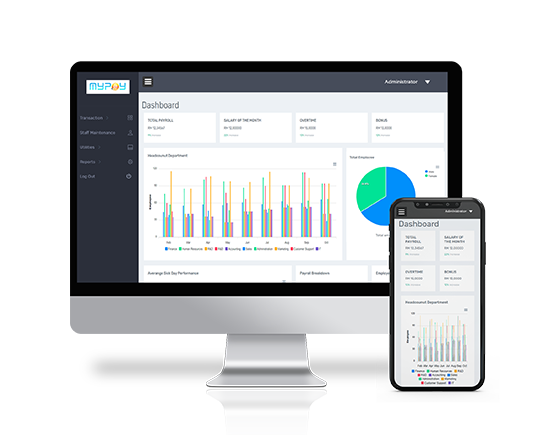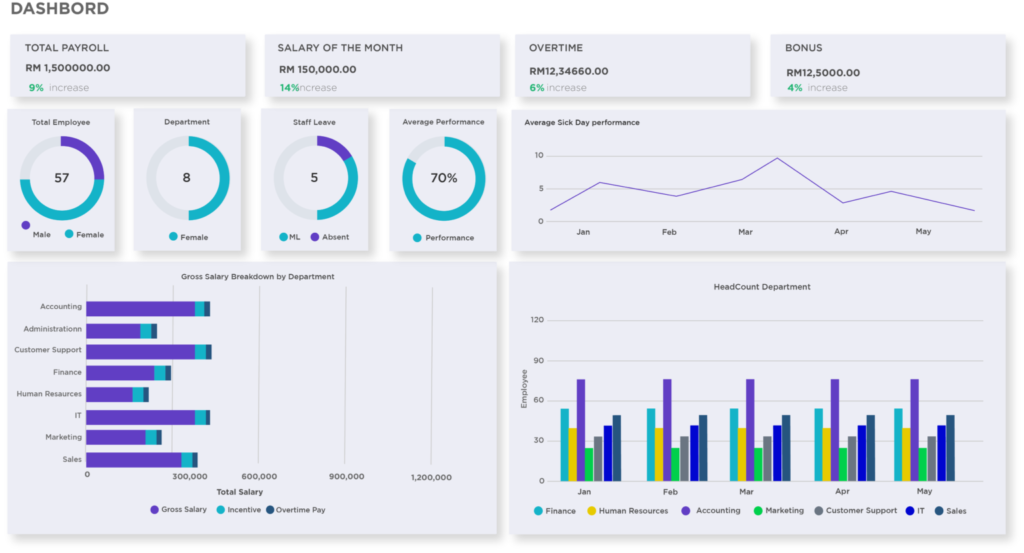
1. How many ways that you can run international payroll?
There are several ways to run international payroll, but two common methods are:
- In-house Payroll: Some companies choose to manage international payroll in-house using their own payroll software and staff. This approach gives the company more control over the process but can be complex and resource-intensive, especially when dealing with multiple countries and compliance requirements.
- Outsourced Payroll: Many companies opt to outsource their international payroll to a specialized payroll provider. These providers have expertise in managing payroll across different countries and can ensure compliance with local regulations. Outsourcing can save time and resources for the company and reduce the risk of errors and penalties.
2. what is payroll outsourcing?
Payroll outsourcing is the practice of hiring a third-party company to handle all aspects of payroll processing, including calculating wages, withholding taxes, distributing paychecks, and ensuring compliance with government regulations. By outsourcing payroll, businesses can save time and resources, reduce the risk of errors and penalties, and focus on core activities.




3. How does global payroll work?
Global payroll is the process of managing payroll operations for employees located in multiple countries. It involves calculating and processing payments, deducting taxes and other withholdings according to each country’s regulations, and ensuring compliance with local labor laws.
Here’s how it typically works:
- Collecting Data: Relevant employee data such as hours worked, salaries, benefits, and tax information is gathered from various sources, including HR departments and time tracking systems.
- Processing Payroll: Using specialized software or services, payroll professionals calculate each employee’s wages, including any overtime, bonuses, or deductions. They also calculate and deduct taxes, social security contributions, and other withholdings according to each country’s laws.
- Payment: Once the payroll is processed, payments are made to employees through various methods, such as direct deposit, checks, or electronic transfers, depending on the country’s banking practices.
- Compliance: Ensuring compliance with local laws and regulations is critical in global payroll. This includes staying up-to-date with tax laws, labor regulations, and reporting requirements in each country where employees are located.
- Reporting: Detailed reports are generated to provide insights into payroll expenses, tax liabilities, and compliance status. These reports help businesses make informed decisions and ensure accurate financial reporting.
- Integration: Global payroll systems may need to integrate with other systems, such as HR management, accounting, and time tracking software, to streamline data flow and ensure accuracy.
Managing global payroll can be complex due to differences in regulations, currencies, and cultural practices across countries. Many businesses choose to outsource global payroll to specialized providers to ensure compliance and streamline operations.
4. Payroll outsource include which service?
When a company outsources its payroll, the services provided typically include:
- Calculating Payroll: This involves calculating wages, bonuses, overtime, and other payments for employees based on their attendance and other relevant data.
- Tax Deductions: Payroll service providers calculate and deduct taxes from employees’ wages, including income tax, social security contributions, and any other applicable taxes.
- Payment Processing: The provider ensures that employees are paid accurately and on time, using methods such as direct deposit, checks, or electronic transfers.
- Compliance: Payroll outsourcing includes ensuring compliance with local labor laws, tax regulations, and reporting requirements in each jurisdiction where the company operates.
- Recordkeeping: Providers maintain records of payroll transactions, tax deductions, and other relevant information for auditing and reporting purposes.
- Reporting: Payroll service providers generate reports for the company, detailing payroll expenses, tax liabilities, and other relevant information.
- Support: Providers offer support to both the company and its employees for any payroll-related inquiries or issues.
Overall, outsourcing payroll can help companies save time, reduce costs, and ensure compliance with complex regulations.
5. How much time and input is required from a global payroll client?
The time and input required from a global payroll client can vary depending on the complexity of the payroll process, the number of countries involved, and the level of service provided by the payroll provider. However, clients typically need to provide the following:
- Employee Data: Clients need to provide accurate and up-to-date employee data, including information such as salaries, bonuses, benefits, and tax details.
- Changes and Updates: Clients need to communicate any changes or updates to employee data, such as new hires, terminations, promotions, or changes in salary or benefits.
- Time and Attendance Records: Clients may need to provide time and attendance records for hourly employees to ensure accurate calculation of wages.
- Approvals: Clients may need to review and approve payroll calculations and reports before payments are made to employees.
- Compliance Information: Clients need to provide information about local labor laws, tax regulations, and other compliance requirements in each country where they operate.
- Feedback and Communication: Clients should provide feedback and communicate any issues or concerns to the payroll provider to ensure that payroll processes are running smoothly.
Overall, while some input and time commitment are required from clients, outsourcing global payroll can significantly reduce the administrative burden and ensure compliance with local regulations.
6. Why choose an outsourced global payroll service?
There are several reasons why a company might choose to outsource its global payroll:
- Expertise: Global payroll providers have expertise in managing payroll across different countries and are familiar with local tax laws, labor regulations, and compliance requirements. This expertise can help ensure accurate and compliant payroll processing.
- Efficiency: Outsourcing payroll can save time and resources for the company, allowing staff to focus on core business activities. Payroll providers use specialized software and streamlined processes to efficiently manage payroll for multiple countries.
- Cost-Effective: Outsourcing payroll can be cost-effective, especially for companies with operations in multiple countries. Payroll providers can leverage economies of scale and offer competitive pricing compared to managing payroll in-house.
- Compliance: Global payroll providers can help ensure compliance with local tax laws, labor regulations, and reporting requirements in each jurisdiction. This can reduce the risk of errors, penalties, and compliance issues for the company.
- Scalability: Outsourced payroll services can easily scale up or down to accommodate changes in the company’s workforce or expansion into new countries. This scalability can help the company adapt to changing business needs.
- Risk Management: Outsourcing payroll can help mitigate risks associated with managing payroll in-house, such as errors in calculations, data breaches, or non-compliance with local regulations. Payroll providers often offer guarantees and insurance to cover any potential losses.
Overall, outsourcing global payroll can provide companies with the expertise, efficiency, and compliance support they need to manage payroll operations effectively across different countries.
7. Benefit of outsourced global payroll service
Outsourcing global payroll can offer several benefits to companies, including:
- Cost Savings: Outsourcing payroll can be more cost-effective than managing it in-house, as it eliminates the need to hire and train payroll staff, invest in payroll software, and maintain payroll systems.
- Time Savings: Outsourcing payroll saves time for HR and finance teams, allowing them to focus on more strategic tasks. Payroll providers handle all payroll-related tasks, including calculations, tax deductions, and compliance, saving valuable time and resources.
- Accuracy and Compliance: Global payroll providers have expertise in local tax laws, labor regulations, and compliance requirements. They ensure accurate payroll processing and compliance with local regulations, reducing the risk of errors and penalties.
- Scalability: Outsourced payroll services can easily scale to accommodate changes in the company’s workforce or expansion into new countries. This scalability is especially beneficial for companies with global operations.
- Access to Technology: Payroll providers use specialized payroll software and technology to streamline payroll processes and ensure accuracy. Outsourcing provides access to this technology without the need for companies to invest in it themselves.
- Data Security: Payroll providers adhere to strict data security standards to protect sensitive employee information. They implement measures such as encryption, secure servers, and regular audits to ensure data security and compliance with data protection regulations.
- Employee Satisfaction: Accurate and timely payroll processing contributes to employee satisfaction. Outsourcing payroll ensures that employees are paid accurately and on time, enhancing their overall experience with the company.
Overall, outsourcing global payroll can help companies reduce costs, save time, ensure compliance, and improve overall efficiency in managing their payroll operations.
8. How long does it take to set up global payroll?
The time it takes to set up global payroll can vary depending on several factors, including the complexity of the payroll process, the number of countries involved, the readiness of the company’s data, and the capabilities of the payroll provider. However, in general, setting up global payroll can take anywhere from a few weeks to several months.
Here’s a rough timeline of the typical steps involved in setting up global payroll:
- Assessment and Planning (1-2 weeks): The company and the payroll provider assess the company’s needs, determine the countries involved, and develop a plan for setting up global payroll.
- Data Collection and Preparation (2-4 weeks): The company gathers and prepares employee data, including information on salaries, benefits, tax details, and other relevant information for each country.
- System Configuration (2-4 weeks): The payroll provider configures its systems to accommodate the company’s payroll requirements, including setting up tax calculations, payment methods, and reporting.
- Testing and Validation (2-4 weeks): The payroll provider tests the system to ensure that calculations are accurate, payments are processed correctly, and compliance requirements are met.
- Training (1-2 weeks): The company’s HR and finance teams are trained on how to use the payroll system and understand the payroll processes for each country.
- Go-Live (1 week): Once testing is complete and the system is ready, the payroll provider goes live with the new global payroll system.
It’s important to note that this timeline is just a rough estimate and can vary depending on the specific requirements of each company and the complexity of the payroll process. Additionally, unexpected issues or delays can occur during the setup process, which may extend the timeline.
9. How much cost of outsourced global payroll service?
The cost of outsourced global payroll services can vary widely depending on several factors, including the number of employees, the complexity of the payroll process, the countries involved, and the level of service provided by the payroll provider.
In general, outsourcing global payroll can cost anywhere from a few thousand dollars per year for small companies with a limited number of employees and simple payroll requirements, to hundreds of thousands or even millions of dollars per year for large multinational companies with complex payroll needs in multiple countries.
Some common cost factors to consider when outsourcing global payroll include:
- Number of Employees: The more employees you have, the higher the cost of payroll processing. Many payroll providers charge a per-employee fee.
- Number of Countries: Managing payroll in multiple countries can increase the cost, as each country may have different tax laws, labor regulations, and compliance requirements.
- Level of Service: The level of service provided by the payroll provider can also affect the cost. Some providers offer basic payroll processing services, while others offer more comprehensive services, such as tax compliance, reporting, and employee self-service portals.
- Additional Services: Additional services, such as HR and benefits administration, time and attendance tracking, and employee onboarding, may incur additional costs.
- Software and Technology: Some payroll providers charge for the use of their software and technology, while others include it as part of their service package.
It’s important to carefully review the pricing structure and service agreement of the payroll provider to understand exactly what is included in the cost and to ensure that it aligns with your company’s needs and budget.
Welcome to contact us for a quotation that fit your needs.

